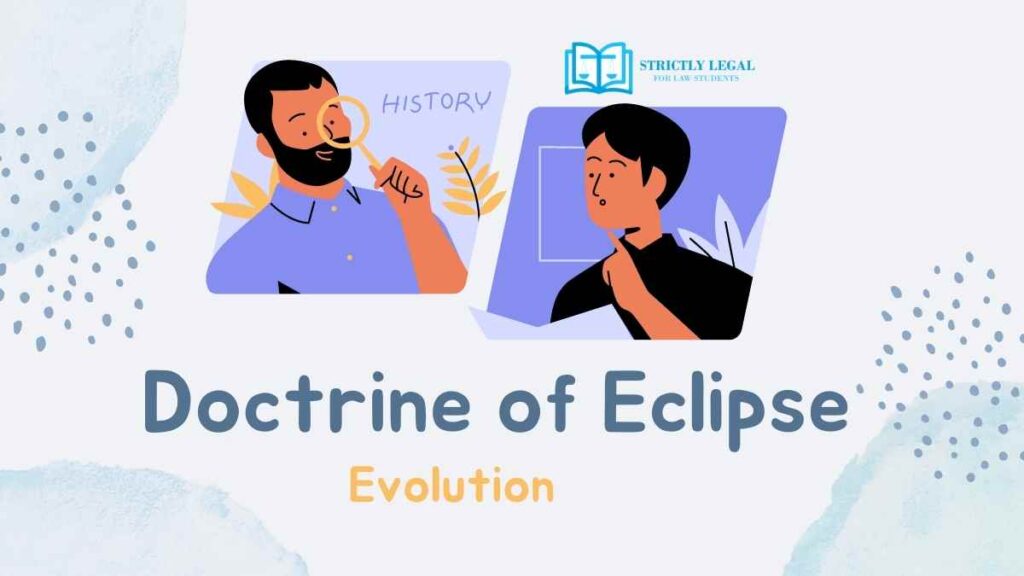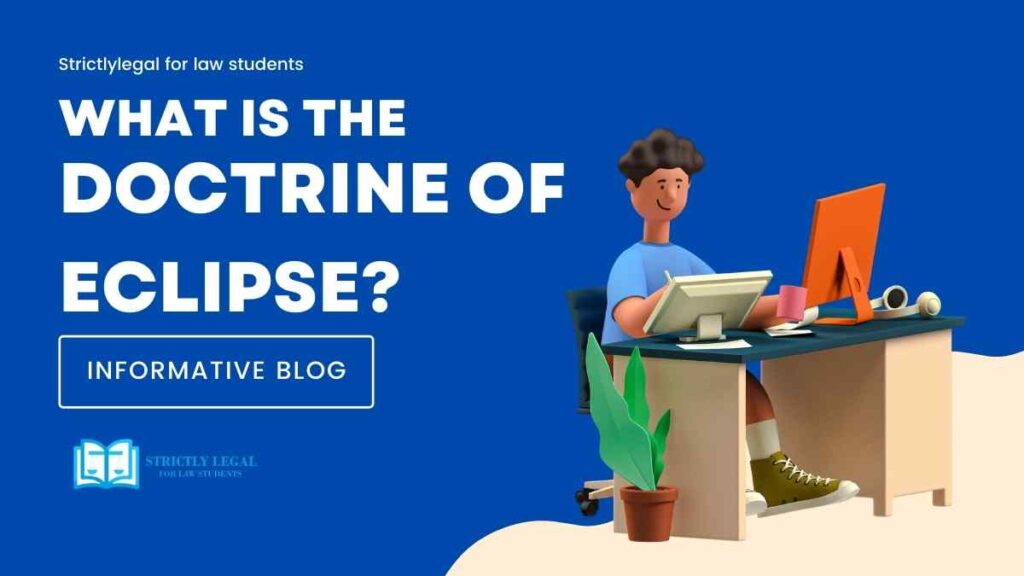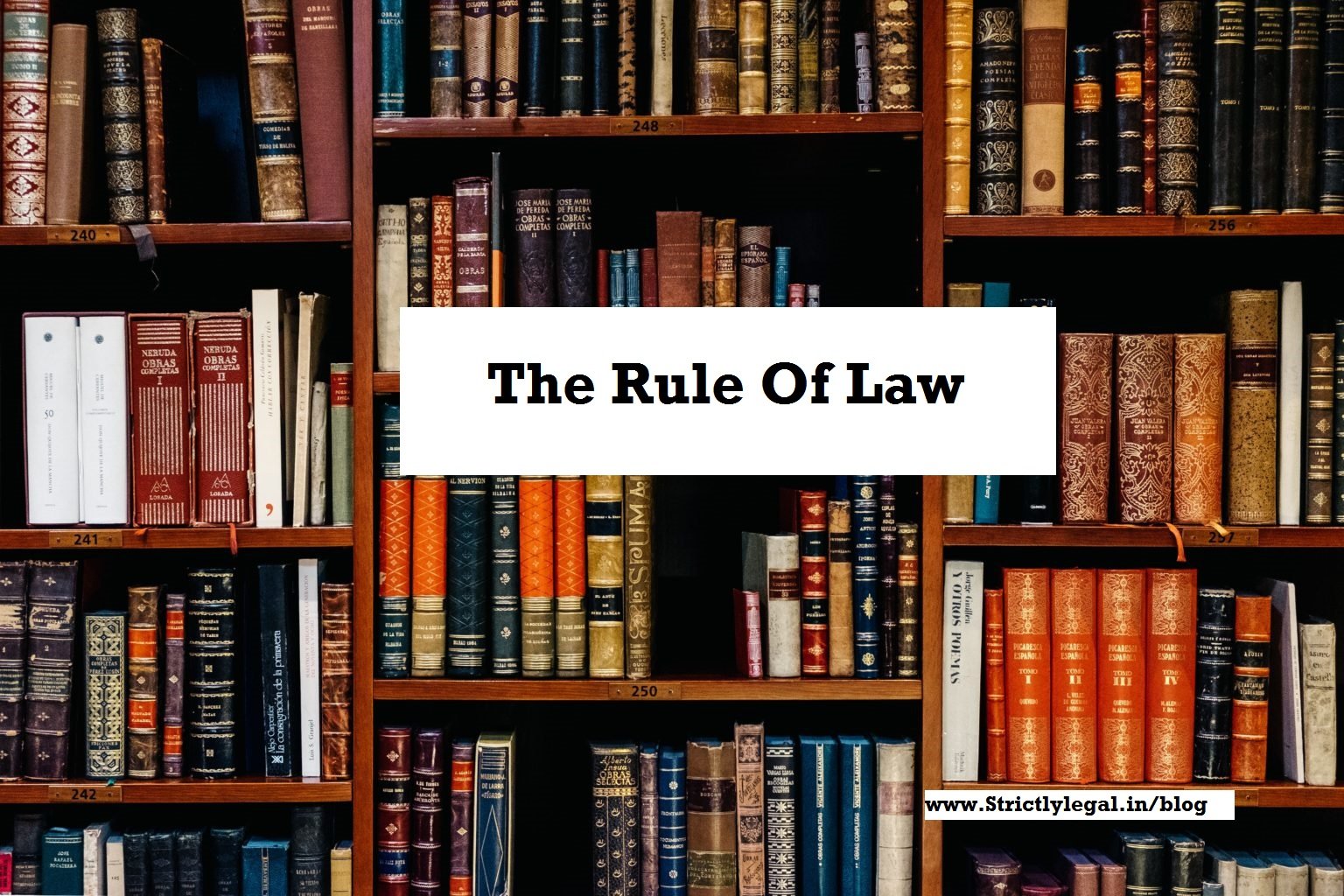The principle of doctrine of eclipse means that any law existing before the commencement of the constitution if in violation of any of the fundamental rights then such violative provision of law will become dormant and inoperable until such fundamental right is amended and the violating is removed.
In this blog we will discuss the above topic which is also very important topic for the UPSC exam. It is by far asked in exams involving UPSC polity & governance segments.
Table of Contents
Meaning
The doctrine of eclipse is a principle that states that if there’s any law or provision of law that is inconsistent with the fundamental rights as has been guaranteed under the constitution of India then such law or such part as is inconsistent will be inoperative until the fundamental right is amended so as to not overshadow such law anymore. As soon as such inconsistency is removed, the law or such part as was previously inoperable becomes valid and operable again.
It is a common misunderstanding that if any law or provision of law is in violation of the fundamental rights then it is deemed to be repealed. But in actual, such inoperable part stays in moribund condition and takes the shape of a sleeping provision. It is not a nullity or void ab initio.
It must also be noted that the doctrine of eclipse is a principle applicable to pre-constitutional laws and not post constitutional laws. That means this particular doctrine of eclipse applies only to laws that existed before the adoption of the constitution. Any law that is in direct violation of the fundamental rights as has been guaranteed under the constitution after the constitution has been adopted is void ab initio from the very beginning. It is outright void and not in a moribund condition.
Example of Doctrine of Eclipse
Case law:
One of the landmark judgements of doctrine of eclipse is Bhikhaji v. State of Madhya Pradesh. In this case, the C.P. and Berar Motor Vehicles (Amendment) Act 1948 allowed the government of the state to monopolies the entire motor transport business in the region. After the constitution was adopted this provision of law directly interfered with the fundament right to “to practise any profession, or to carry on any occupation, trade or business”.
When the act( C.P. and Berar Motor Vehicles (Amendment) Act 1948) commenced it was valid but after the commencement of the constitution there arose a conflict. The conflict was later resolved when the fundamental right conflicting the provision of the Act was amended. The Constitution (First Amendment Act), 1951 was brought ” to get rid of the shadow and to make the impugned Act devoid of the blemish or infirmity” in the words of the Supreme Court of India.
Features of the Doctrine
The features or elements of this doctrine can be summed up as follows:
- Applicable only to pre-constitutional laws i.e. laws enacted before the Constitution of India
- Applies only when a pre-constitutional law is in conflict with the fundamental rights.
- The conflicting part does not become dead. It only becomes inoperable i.e. stays in moribund condition.
- If the conflict is removed via amendment the impugned law becomes operative again.

The evolution of doctrine of eclipse in India
This doctrine gets its force from article 13(1) of the constitution which states that:
Article 13(1) in The Constitution Of India 1949(1) All laws in force in the territory of India immediately before the commencement of this Constitution, in so far as they are inconsistent with the provisions of this Part, shall, to the extent of such inconsistency, be void
Article 13(1)
Court Rulings:
- Keshav Madhav Menon v. State of Bombay case
- State of Gujrat & Anr v. Ambica Mills Ltd
Some other important similar doctrines:
| Doctrine of Basic Structure | Doctrine of Severability |
| Doctrine of Insurable interest | Doctrine of harmonious construction |
| Doctrine of constructive notice | Doctrine of Fair Use (copyright) |
Frequently asked question on this doctrine
The doctrine of eclipse applies to only pre-constitutional laws that is laws enacted before the adoption of the constitution of India. This view was also reiterated in the case of Deep Chand v. State of Uttar Pradesh.
The doctrine of eclipse can be found in Article 13(1) of the Constitution of India. Several supreme court judgements later strengthened the foundation of this doctrine as can be read today.
The key difference between doctrine of eclipse and severability is that the later can be applied to post-constitutional laws. Severability is a separate concept altogether, it makes the conflicting provisions void ab initio keeping rest of the act applicable and operable.

Passionate about using the law to make a difference in people’s lives. An Advocate by profession.




